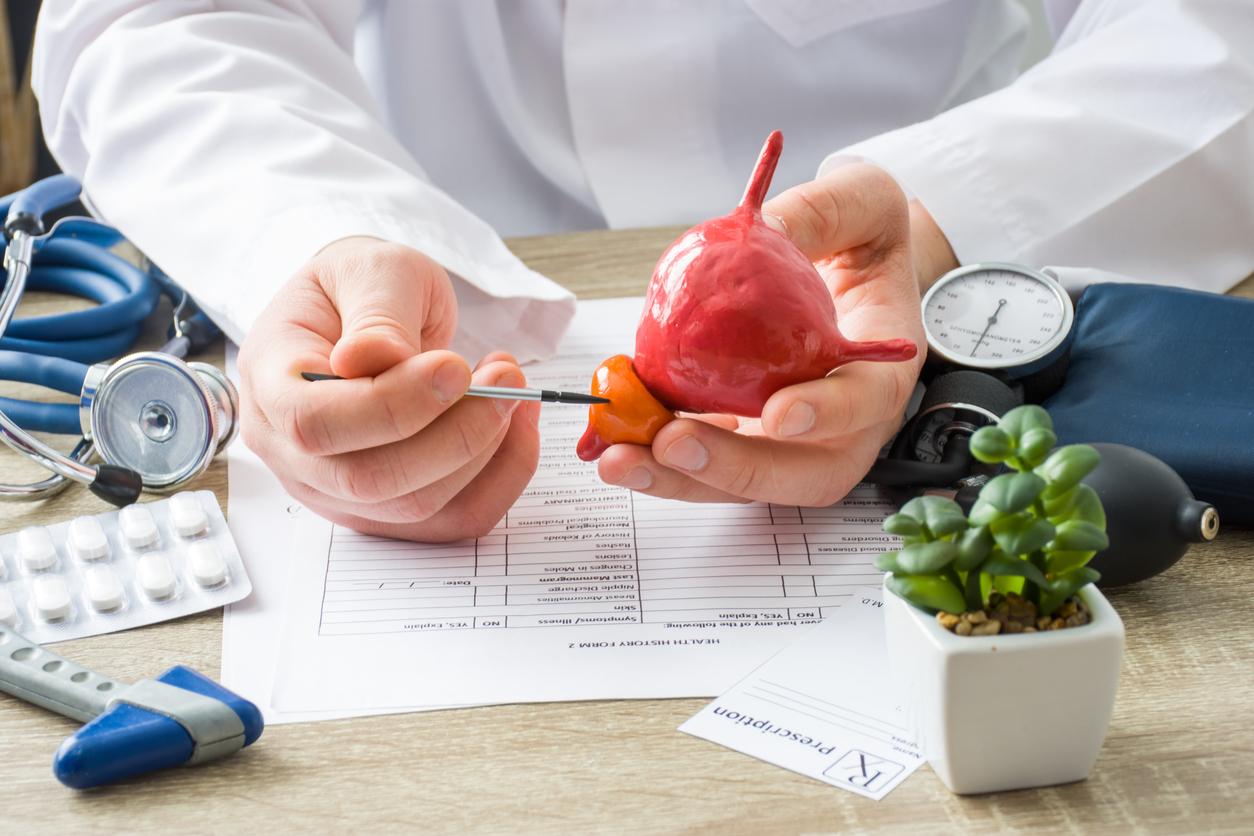What you need to know…
The prostate is a ring-shaped organ surrounding the urethra, through which urine or semen passes. About the size of a chestnut, it produces the liquid used in the composition of sperm. It is therefore involved in the urinary and genital systems. Two different problems can interfere with sexuality.
Adenoma of the prostate, the enlargement of the gland, can be bothersome. It is also called benign prostatic hyperplasia. This enlarges, causing abnormalities in the functioning of the bladder and the sexual system. Thus, we can observe both urinary disorders (frequent urges to urinate, decrease in the force of the jet …) and, often, difficulties oferection more or less important.
the Prostate cancer, he does not lead to sexual difficulties at the time. Rather, it is the treatment (intervention, certain medications, etc.) that can have repercussions on sexuality.
Benign prostatic hyperplasia: is it serious or not?
Prostate: the signs that should alert
What you can do …
First talk to the doctor. This is the first thing to do if you have a question about a prostate problem or if you are having sexual difficulties. The attending physician or specialist (urologist) may request a complete assessment to find out whether these disorders are due to prostate trouble or to another cause, but also to take stock of the medications that we are taking. He will then be able to propose solutions, because there are some.
If it is an adenoma, report any erection difficulties to your doctor. Effective treatments are available, especially the tadalafil. This drug improves erection and decreases urinary disorders associated with prostate adenoma. Only problem : it is an expensive treatment, not covered by Medicare.
Prostate cancer: there would be 5 different
If an intervention is being considered, ask questions about his “sexual outcome”. A priori, we find erections as good as before some time after the operation. Corn ejaculation may be altered, with semen sometimes going back up into the bladder instead of coming out normally through the urethra. Nevertheless, the feeling of pleasure remains intact.
In the event of cancer, it is necessary to be informed as well as possible. Certain very little progressive forms can benefit from active surveillance. This means that they pose little health risk, but should be monitored closely. As long as we do not treat, sexuality is preserved.
If treatment is needed, it may be surgery or radiation therapy, such as brachytherapy (internal radiation therapy). The doctor must then be asked about the advantages and disadvantages of each method by addressing the question of their effects on sexuality.
If the operation preserves the erectile nerves, the man can then regain a functional erection. If the nerves cannot be retained, a natural erection is no longer possible, but various treatments make it possible to obtain it mechanically: intracavernous injections before sexual intercourse, use of a “vacuum” (erection pump), or even inflatable penile implant that is inserted by surgery . On the other hand, ejaculation is suppressed after this type of operation, even if the contractions of theOrgasm and the fun may linger.
Read also:
Sexo: test your knowledge of semen
Pleasure: the 10 questions we would like to ask guys
5 things to know about an erection
















